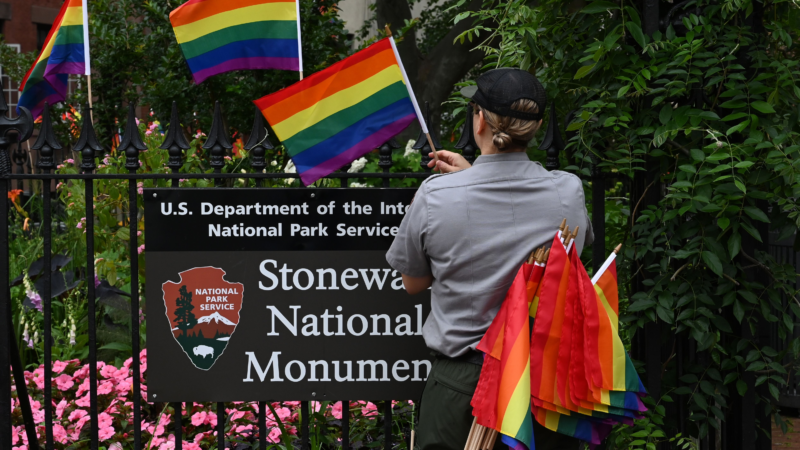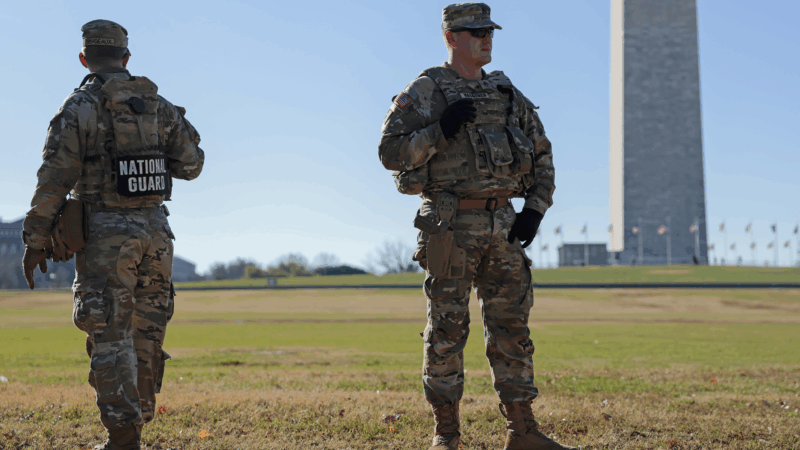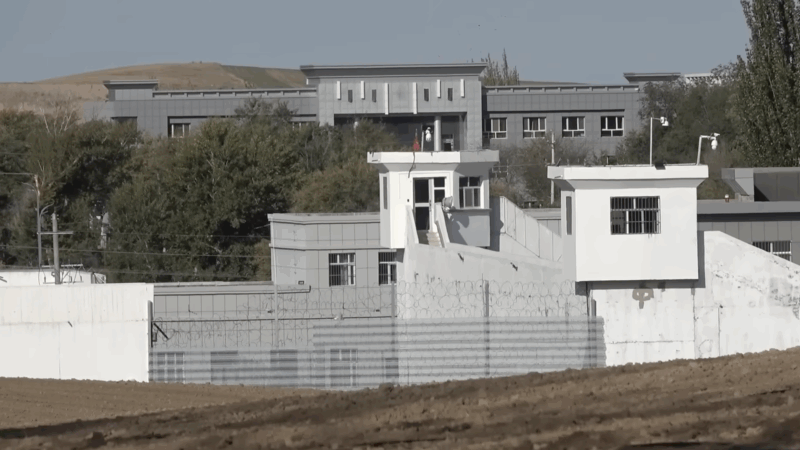Park Service erases ‘transgender’ on Stonewall website, uses the term ‘LGB’ movement
The National Park Service website exploring the history and significance of the Stonewall Uprising has been stripped of any mention of transgender people.
The page was also updated to remove the “T” from the previously used acronym “LGBTQ+” — now, referring to the community as either “LGB” or “LGBQ.” References to the word “queer” have also been removed.
When describing the Stonewall Uprising, the website now reads: “Before the 1960s, almost everything about living openly as a lesbian, gay, bisexual (LGB) person was illegal, but the events at the Stonewall Inn sparked fresh momentum for the LGB civil rights movement!”
It’s not immediately clear who called for the change. But it’s seen as the latest pushback on the transgender community by the federal government since President Trump took office. Over the past month, the Trump administration has issued executive orders to eliminate the idea of a “gender identity” separate from sex and to ban transgender athletes from participating in women’s sports.
“This decision to erase the word ‘transgender’ is a deliberate attempt to erase our history and marginalize the very people who paved the way for many victories we have achieved as a community,” the Stonewall Inn and the Stonewall Inn Gives Back Initiative said in a joint statement.
Timothy Leonard, the Northeast program manager for the National Parks Conservation Association, a group that advocates for the National Park System and pushed for the Stonewall monument, said, “Erasing letters or webpages does not change the history or the contributions of our transgender community members at Stonewall or anywhere else. History was made here and civil rights were earned because of Stonewall.”
The National Park Service did not respond to NPR’s request for comment.
In 1969, a gay bar in New York City called the Stonewall Inn was raided by police, igniting fierce riots and protests that lasted through the night and into the following days. This came after years of raids, beatings and arrests endured by LGBTQ individuals.
While the Stonewall Uprising was not the first push for LGBTQ equality in the United States, it is regarded as a turning point in sparking a nationwide movement for the equal treatment of gay, lesbian, bisexual and transgender Americans.
Among those who played a central role in the struggle were transgender activists, including Marsha P. Johnson and Sylvia Rivera.


Both Johnson and Rivera were present on the first night of the riots. Rivera has been credited to have thrown the second Molotov cocktail.
In the years following Stonewall, Johnson and Rivera founded a group to help homeless trans youth in New York City called Street Transvestite Action Revolutionaries, or STAR. Rivera also fought to ensure transgender people were included in the victories achieved by the gay-rights movement, like the Sexual Orientation Non-Discrimination Act in New York.
It was less than a decade ago, in 2016, when the Stonewall Inn was designated a national monument by President Barack Obama — becoming the first U.S. landmark dedicated to LGBTQ rights and history.
A protest organized by the Stonewall Inn staff and local LGBTQ groups is scheduled at the Stonewall National Monument on Friday afternoon.
Federal court says troops can stay in D.C., and hints at prolonged deployment
A federal appeals court in Washington, D.C. has ruled that National Guard troops can remain in the city for now. That decision comes after a different federal appeals court ruled that troops must leave Los Angeles earlier this week.
Jack Smith defends his prosecutions of Trump in closed-door session in Congress
The former Justice Department special counsel told the House Judiciary Committee that his team developed "proof beyond a reasonable doubt" that Trump took part in a criminal scheme to overturn the 2020 election.
A Chinese man who filmed secret footage in Xinjiang risks deportation from the U.S.
Guan Heng sailed to the U.S. by boat from the Bahamas after publishing footage he filmed of purported detention camps in China. He has been held in immigration detention since August.
‘Harry Potter’ fans are flying to Broadway to see the original Draco Malfoy
Almost eight years after Harry Potter and the Cursed Child opened on Broadway, Tom Felton, who played Draco Malfoy in the films, is now playing him as an adult onstage.
A photographer discovers miles of dinosaur tracks near Italy’s Winter Olympic venues
A nature photographer stumbled upon thousands of 210-million-year-old dinosaur tracks in Italy's central Alps, near where some Olympic skiing and snowboarding events will be held in February.
Senate passes $901 billion defense bill that pushes Hegseth for boat strike video
The Senate has given final passage to the annual National Defense Authorization Act, which raises troop pay by 3.8%. It also pressures Defense Secretary Pete Hegseth to provide lawmakers with video of strikes on alleged drug boats near Venezuela.









